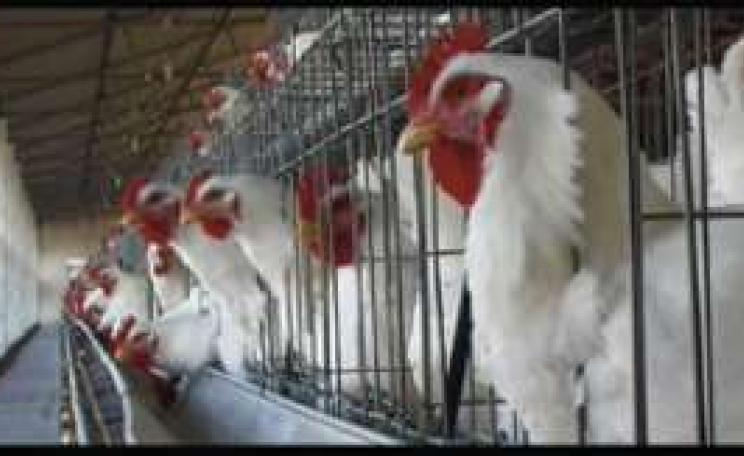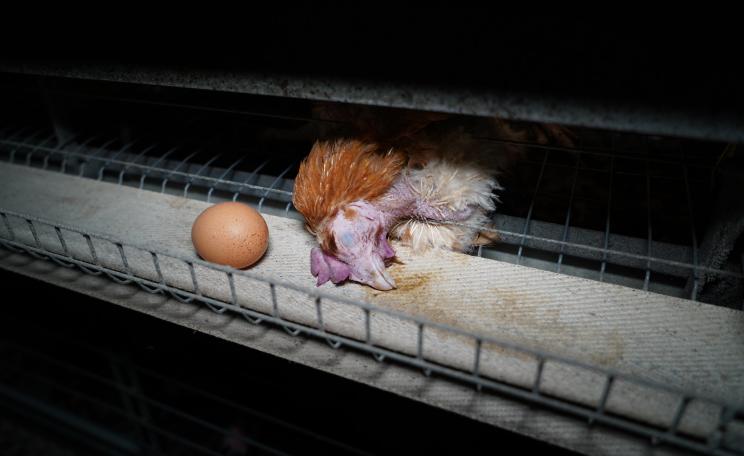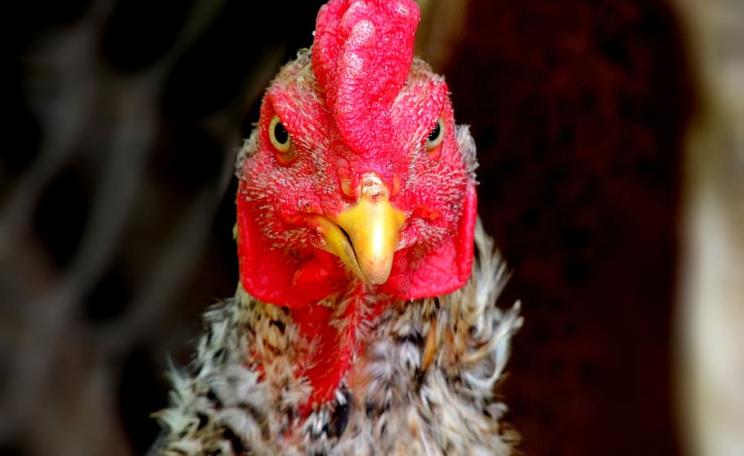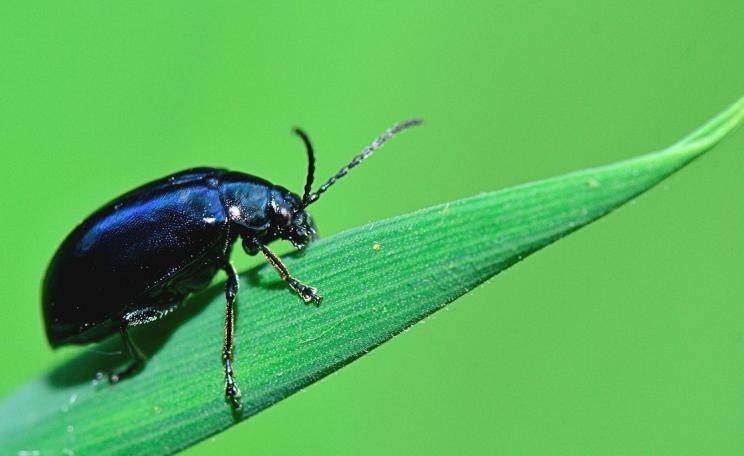Billions of animals are enduring lives of suffering - so intercultural silence isn't an option.
People in South Korea have faced international criticism over dog meat for decades. Now the government has finally moved to prohibit the practice - to the jubilation of the Western media.
Dog meat supporters decried the ban as a travesty, even threatening to unleash two million dogs in protest. While politicians expected opposition, not a single parliamentarian from any party voted against the ban.
But the debate raises deeper questions: is the narrowly applied outrage over dog meat justified, or do we just have a blind spot when it comes to our own meat practices? Morally speaking, are animal products like pig meat familiar to consumers in the West any different to dog meat?
This article has been published through the Ecologist Writers' Fund. We ask readers for donations to pay some authors £200 for their work. Please make a donation now. You can learn more about the fund, and make an application, on our website.
Tradition
Consuming dog meat in Korea stretches back centuries. Traditional beliefs held that dog meat dishes like boshintang soup possess cooling medicinal properties, helping invigorate people during the country's sweltering summers. Over time, it also became an inexpensive and accessible source of protein.
This long history collided with modernisation narratives as South Korea prepared to host the 1988 Seoul Olympics and sought validation as an advanced nation on the world stage.
Having developed from dire poverty after the Korean War (1950-1953) to stunning economic growth within just a few decades, many South Koreans judged—and still judge—their country's progress and standing against Western benchmarks.
A de facto temporary ban on dog meat in the capital, Seoul, was put in place a few years before the Olympics “to reduce the possibility of tourists getting a close look at the food.” Worried lawmakers at the time like Kim Jip asked, “as an advanced nation, how will others see us if we legally allow dog meat leading up to the Olympics?”
The dog meat industry occupied a legal grey area without regulations applied to other farmed animals. Over the years, pressure for South Korea to ban dog meat has steadily increased.
Critics like Brigitte Bardot famously called Koreans “savage" for raising dogs for food. Animal welfare groups, including Western charities with glossy celebrity backing, have been vocal about the “brutal” practice, and heavily publicised the putrid conditions in which dogs are raised, and slaughtered.
Billions of animals are enduring lives of suffering - so intercultural silence isn't an option.
Flux
Demographic and societal changes have also shifted attitudes, especially increased pet ownership in a country with the world’s lowest birth rate. A recent survey found that 93 per cent of people had no intention of eating dog meat, while 82 per cent supported the ban.
Still, pragmatic issues pose barriers, like the uncertain livelihoods of dog-farming families, who often feel forced into this industry as a means of basic survival.
Old-age income poverty in South Korea poses very real societal challenges, and solutions remain complicated as younger generations increasingly regard dogs as pets, not livestock.
Appeals to policymakers to prohibit the dog meat trade frequently fell on deaf ears over the years. It therefore came as a shock to many, including activists, when the government announced in November 2023 that it was finally going to ban the practice. Two months later, the dog meat ban bill passed successfully. The legislation will take effect after a three-year grace period to allow dog meat farmers and vendors to transition into other trades.

Special
The Western press celebrated South Korea’s ban, but has failed to ask whether Western food practices are morally similar to dog meat. What makes dogs the exception? Why would pig meat, for example, be any different to dog meat?
Some will cite dogs’ exceptional sensitivity and intelligence compared to other animals to argue that dog meat is wrong but pig meat is not.
But studies reveal more hidden depths to pigs’ minds than many realise. Like dogs, pigs demonstrate complex psychology and cognition across areas from social behaviour to self-awareness and emotion.
Others will argue that dogs are dependent on us. Humans and dogs have co-evolved, and we have changed the very make-up of dogs through selective breeding. Now that we’ve tamed dogs and won their trust, killing them would abuse the power we have over them.
But all farmed animals – caged or otherwise confined – are vulnerable and dependent on us humans. And we’ve also selectively bred farmed animals to maximise profits. We breed “Franken-chickens” to grow unnaturally fast until their outsized bodies fail, because it’s more profitable that way. Cows and sheep, though dependent on and often trusting of their farmers, are dispatched to slaughterhouses a fraction of the way through their lifespan.
Others will say: but aren’t there just different roles for different animals? Dogs are pets, pigs are food. Hens are egg-layers and cows are milk-providers. Doesn’t the morality of how we interact with animals depend on the purpose of the animal?
But if that approach were correct, we could rightly say that the purpose of a gorilla is to be chained to our front door to guard our home. We could defensibly decide that the purpose of a parrot is to be turned into colourful hats. Our deciding to use an animal in a certain way doesn’t by itself make that use of them right.
Morality
Some people attempt to justify differential treatment through cultural relativity. They argue that in the West, we care for dogs and eat pigs, while the reverse is true elsewhere. We should respect each culture’s practices, as moral norms shift between places.
But morality does not depend entirely on culture. If it did, racism would be morally permissible within a culture that is sufficiently racist. And racism cannot be right - nor can the underlying idea that literally anything goes so long as a majority thinks it does.
Some argue that Western farmed animals are treated better. But as the West continues to intensify factory farming to meet ever-higher demand for meat, it's scarcely credible that Western farmed animals are treated appropriately. Industry spin about welfare standards and clean packages in our supermarkets are a far cry from the reality of factory farms and the slaughterhouses mechanically processing tens of millions of pigs and billions of chickens annually in the UK alone.
Package
It’s hard to place much moral distance between dog and pig meat. This suggests that either dog and pig meat are both fine, or they are both impermissible. So, should we believe that both are alright, or that both are not alright?

Dog meat advocates defend both. “It is absurd to create a commotion by prohibiting people from eating what they choose, says Joo Young-bong, who heads a dog meat farmers' association. Western animal farmers make similar claims about personal choice.
What underlies this view is that we can relate to animals according to personal preference. But that can’t be right, because that would mean that if someone wants to take holidays where they roam around the planet needlessly killing and eating elephants, pandas and lions, their mere preference to do so makes it fine. This approach reduces ethics to taste.
Ultimately, it seems that animals have rights not to be killed for commercial food production. Pigs, dogs and countless other animals have the capacity for suffering and for enjoying life, not unlike us.
Many believe that only humans have moral rights because only humans are capable of rationality, long-term planning, and autonomy. But this view leads to a dark place. Not all humans have these advanced mental abilities.
Some humans cannot develop the capacity to reason or talk, but they do have conscious experiences and can live long and happy lives. Thankfully, we would never conclude that these humans have no right not to be killed or harmed. This suggests that it’s not just rational beings who have moral rights–other conscious beings do too. So, both Korean dog farming and Western pig farming violate animals’ rights.
There is of course an even simpler reason for society to move beyond meat, on top of the environmental destruction it causes: suffering matters. Most of us agree that we shouldn’t cause others unnecessary suffering, but industrial meat production does cause unnecessary suffering.
Some may argue that it’s natural for animals, including humans, to eat other animals to survive. But the scale and methods of industrial animal farming far exceed what occurs in nature.
Double standards
Dog meat remains a sensitive issue. But it raises a vital question. How can we talk across cultures about how to treat animals? Billions of animals are enduring lives of suffering, so intercultural silence isn’t an option. But many Western campaigns against South Korea’s dog trade, whilst they seem to have had an impact, reveal a double standard.
This inconsistency goes beyond celebrity campaigns. In Europe, racist taunts targeting South Korean footballers like Park Ji-Sung and Son Heung-min for their supposed dog-eating habits sit uneasily alongside the tacit acceptance of industrial meat consumption within those same societies.
To make real progress, we need to openly analyse both the practices we conceive of as ‘other’ and the ones we accept without question because of our own cultural norms and conditioning.
We need moral principles that recognise similar cases as similar, whether in animal ethics, environmental sustainability, or human rights. The West is wrong to single out South Korea. But South Korea’s monumental move to protect animals could well spark a brighter future for conscious beings the world over.
These authors
Dr William Gildea is a researcher in moral and political philosophy based at the University of Warwick, UK. His current research focusses on human equality and animal rights.
Raphael Rashid is a freelance journalist based in South Korea. His writing has appeared in The Guardian, Al Jazeera, The New York Times, Nikkei Asia, and other publications, and he is the author of The Korea We Refuse to See, published in Korean.
This article has been published through the Ecologist Writers' Fund. We ask readers for donations to pay some authors £200 for their work. Please make a donation now. You can learn more about the fund, and make an application, on our website.







